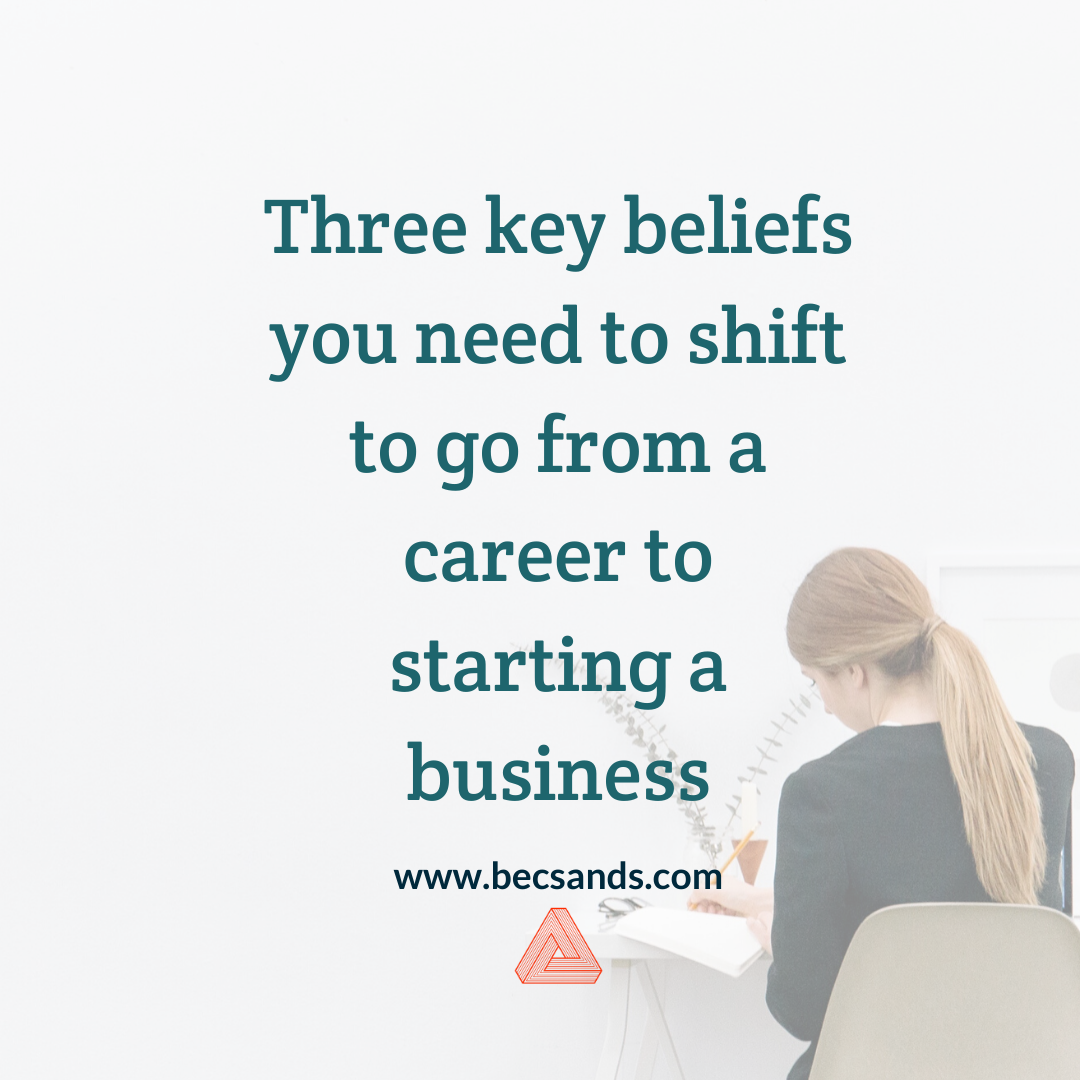Three key beliefs you need to shift to go from a career to starting a business
Hi! I'm Bec Sands, and I help professional women pivot to a career or business they love.
If you've realised that you want to step into your own business, whether as a sole operator or a business owner that employs others, it requires some big mindset shifts.
I’ve been in my own business as a freelance PR consultant and career pivot coach full-time for 12 months now, after having built my coaching business on the side for several years prior to that when I was in corporate.
Since stepping into my own business full time, I’ve learnt a lot of lessons along the way.
The biggest lesson that I’ve learnt is that much of the business journey is about mindset.
The practical stuff is important, sure, but that’s really just the execution. The real work happens when we learn the lessons we need to shift our thinking.
Here's three key beliefs that I believe need to be shifted when stepping from a career into your own business.
ONE: The belief that you can control outcomes
When we work in a career, often we’ve become so adept at the job that we can almost start to predict the outcomes. This provides a sense of control – or security. When we step into our own businesses, as entrepreneurs or solopreneurs, we are literally creating as we go. We need to relinquish control and simply try new things. There is no such thing as failure – only lessons learnt so that you can grow and move forward. You may take 100 actions that lead to nothing and one action that leads to success. But the rewards when you do succeed are SO worth it!
TWO: The belief that you need to work harder and longer to make more money
There’s a perception that more time spent equals more productivity. In fact, this couldn’t be further from the truth. When I spend too much time at my computer I find myself increasingly unproductive. Instead, I use three practical processes to make the most of my time so that I can work less, achieve more, and switch off when I’m not working to have some balance and enjoy my life outside of my business. (This was a process of trial and error – trust me!)
Here’s the three practical processes I use to make the most of my time:
Leverage my most productive time to complete the most important tasks. For example, the time from 8am-12pm is my best creative or strategic time. If I fill it with email, social media, admin tasks or meetings, I tend to have far less productive weeks. When I leave those tasks to the afternoons and do my creative work in the mornings, my productivity increases probably by about threefold. Which means I don’t have to work on the weekends and can switch off by 3pm on a Friday. You might be a night owl, and that’s cool – do what works for you.
Batch similar tasks. This includes doing all of my financials and invoicing in one sitting each week; writing five social media posts and scheduling it in one go rather than spending half an hour a day doing one; and batching meetings together where I can for best use of my time.
Schedule my work and to-do lists in advance. I find the most productive way of working is to spend time on a Friday (ideally) or Sunday afternoon to roughly chunk out time in the diary for the following week based on the work I know is coming up. This isn’t always possible, but at least when I’ve scheduled in the big chunks of work I need to do that I can shift it around if something urgent pops up. One other thing I do here is to focus my time as much as possible on income-producing activity.
THREE: the belief that ‘good things come to those who wait’
Having a business is a marathon, not a sprint, but that doesn’t mean waiting on standby. Instead, business requires taking massive, consistent action on the tasks that will actually move your business forward and generate income. These tasks include strategic and creative planning (but not labouring over it – create a plan, then start executing right away); PR and marketing your business to build your profile and reach new audiences; making offers to your target market; and delivering excellent services.






